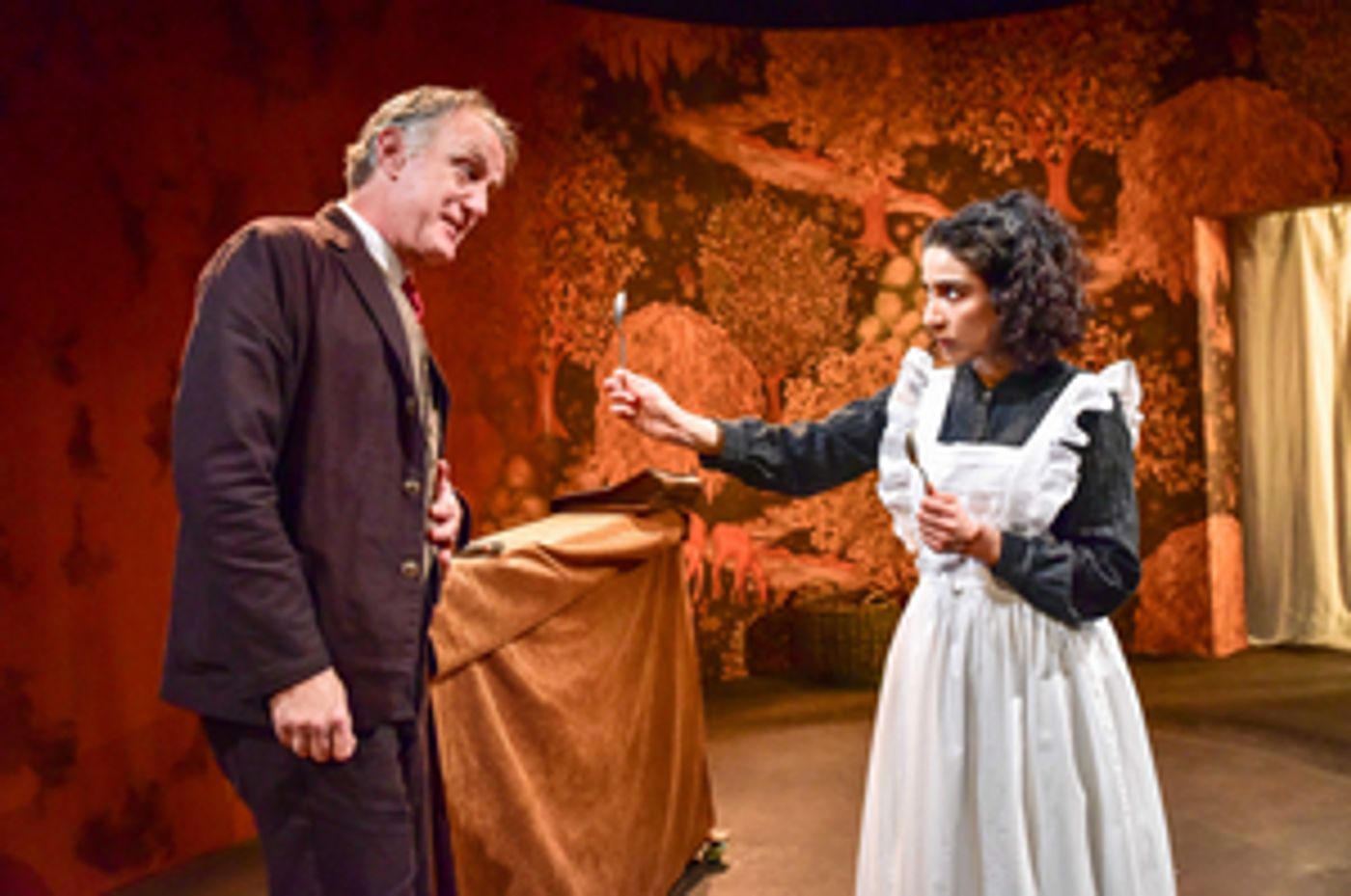Review: FOLK, Hampstead Theatre
Nell Leyshon's new 'play with songs' runs until 5 February

![]() Set in rural Somerset at the beginning of the 20th century, Nell Leyshon's play Folk might seem slight. It's about sisters Lucy and Louie, glove-makers mourning the loss of their mother and trying to make ends meet.
Set in rural Somerset at the beginning of the 20th century, Nell Leyshon's play Folk might seem slight. It's about sisters Lucy and Louie, glove-makers mourning the loss of their mother and trying to make ends meet.
Louie then meets London composer Cecil Sharp, who wants to notate and then compose around their local folk songs. It soon becomes evident that he cares more about his own success and patriotism than about Louie and her music. And this is the story. But while it's true that very little actually happens in this production, boring it is not. Leyshon has crafted a delicate narrative that quietly unpicks our ideas of music, class, and family.
Leyshon takes a story based on historical fact and pulls from it truly three-dimensional characters. As Sharp, Simon Robson carries a powerful gravitas from his very first entrance to his last; in the first act, he comes across as charming but with something sinister as yet unseen. After the interval, this materialises into a condescension and a cruelty that has been bubbling under the surface the whole time.
As Lucy, Sasha Frost is a joy to watch, confident and snarky, while also hitting her character's more vulnerable beats perfectly. Ben Allen, as Lucy's love interest John, has a lot less to work with, but gives a believable, committed performance.
The core of the show, however, and a huge part of what makes this production so successful, is Mariam Haque's performance as Louie. She is captivating, carving out a young woman who at once is intensely anxious and quietly assertive. This is a performance that feels both deeply authentic and fully considered - Haque is definitely one to watch.
It is the relationships between these characters that make Folk so engaging; the sisterly relationship between Lucy and Louie especially is sensitively written and sensitively played. Something I found particularly interesting was the parallels drawn between Lucy and John's romantic relationship, and the relationship between Louie and Sharp, which felt closer to a student/teacher dynamic. This felt under-explored, but did raise some important questions about gender and power dynamics.
The strongest sections of Leyshon's script are the scenes in which Louie and Sharp work on music together. Here, the writing is incisively perceptive, contrasting an unpicking of the elitism of sheet music notation with sensory, illustrative language describing Louie's natural musical ear. I found this to be a hugely effective dissection of an aspect of music not often considered, adding historical context to a common frustration.
It makes sense for Folk to be a two-act play: it portrays the two visits Sharp pays to Somerset. On the other hand, however, this structure feels like it impedes the narrative arc: Act I is excellently paced, while Act II feels slower, especially towards the ending.
The same can be said of Roxana Silbert's direction: in the first half it is kinetic and thoughtful, welcoming audiences into the world of Leyshon's script, whereas towards the final few scenes it begins to feel overly static. This is the weakest part of the production: in the final few scenes, characters stand still and deliver longer chunks of dialogue that make the script's discussions of patriotism and nationalism too explicit. What has until this point been a well-handled undercurrent loses its power and its subtlety.
Folk is billed as a 'play with songs'. While it is far from musical theatre, music lies at the heart of the piece, and leads to some particularly beautiful moments. The first time Louie sings for Sharp sticks in the memory, as simple staging allows Haque's stunning voice to speak for itself. There are also some evocative scene transitions from musical arranger Gary Yershon and movement director Asye Tashkiran.
However, there were many missed opportunities for the music to be woven into the play more fully - more creatively. Especially after the pandemic era of radio plays, and the Hampstead's recent production of Little Scratch, it felt like so much more could have been done to bring Louie's music to life. Theatre sound design has so much to offer, and I would love to see a production of this script that endeavours to put the audience into Louie's place to experience music the way she does, more immersively.
The same can be said of the design and lighting. Rose Revitt and Matt Haskins create an intimate, subtle setting for the story to take part in, but the connection between design and sound seems to have been lost. So much more could have been done to transform the space and physically demonstrate the way the music affects the play's characters.
However, Leyshon's dialogue, while true to the time period and local dialect, feels surprisingly modern, as the characters laugh about being drunk and argue about tricky friendships and relationships. She has created something intricate, honest, and full of heart.
Folk runs at the Hampstead Theatre until 5 February
Photo credit: Robert Day
Reader Reviews

Videos

